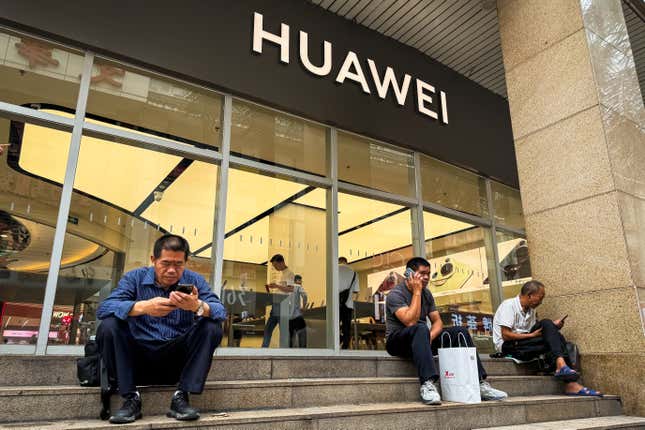
In This Story
China’s answer to being banned from Nvidia’s (NVDA-1.54%) artificial intelligence chips is reportedly being stalled by U.S. trade restrictions.
Huawei’s next two Ascend processors are being designed with the 7-nanometer process that has existed for years, Bloomberg reported, citing unnamed people familiar with the matter. The hampered efforts are reportedly due U.S.-led export controls that don’t allow Huawei’s Chinese chipmaking partners to get extreme ultraviolet lithography machines from the Netherlands-based ASML (ASML-0.12%).
The snag means Huawei’s technology for its advanced chips will be years behind until at least 2026, and advanced processors for its Mate 60 smartphones will also be held back, people told Bloomberg. For comparison, Taiwan Semiconductor Manufacturing Company (TSM+0.63%), the manufacturing partner to Nvidia and Apple (AAPL-0.39%), has said it expects volume production of 2-nanometer chips in 2025 — three generations ahead of Huawei.
To add to the pain, Huawei’s main Chinese chipmaking partner, Semiconductor Manufacturing International Corp., is reportedly having issues producing steady yields — or the amount of functional chips it can produce per manufacturing process — of 7-nanometer chips. One person told Bloomberg that Huawei may not have enough chips for AI and smartphones in the next few years.
Meanwhile, TSMC reportedly told its Chinese customers earlier this month that it is no longer manufacturing AI chips with the advanced 7 nanometer process. If TSMC does produce the advanced chips for Chinese firms in the future, the U.S. government would likely be involved in an approval process, the Financial Times reported.
The Taiwanese chipmaker’s new rules come as it faces an investigation into how its advanced chip technology ended up in a cutting-edge AI accelerator from the sanctioned Huawei. Canadian research firm TechInsights took apart Huawei’s chip and reportedly found the TSMC-made tech.